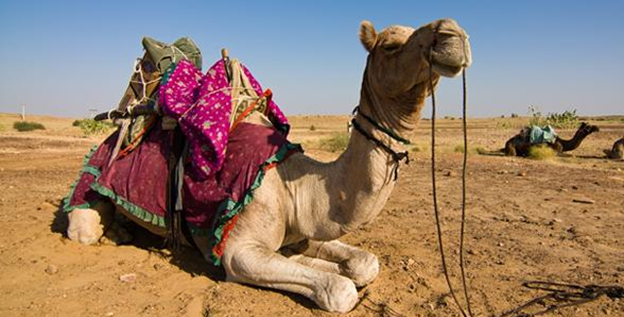Rape Becomes 'Small' When the Cash Flow Stops
Waiting for tourists

NEW DELHI: The Union government is feeling the heat generated by the increasing incidents of rape in Delhi and other parts of India, with tourism down to a point where luxury hotels are slashing prices to get clients. Travel agencies report a sharp fall in tourism with several countries having issued advisories to their citizens warning them about the violence against women, including foreign women in India.
Unable to secure the safety of women Union Finance Minister Arun Jaitley sought to make light of the increasing number of rapes and created a viral storm on the social media in particular as a result. His remarks at a tourism conference ,"One small incident of rape in Delhi advertised world over is enough to cost us billions of dollars in terms of global tourism” has been strongly condemned by rape victims, their families and society at large. Even the Press Information Bureau edited out the word ‘small from the press release it prepared of the Minister’s remarks.
Jaitley, 61, had to issue a denial of sorts saying, “"I regret that some word that I used was construed as insensitive, that was never my intention. I have been always been very outspoken about issues relating to crime against women. I am very sensitive to these issues myself.” He is the senior most Minister in the government, holding charge of Defence and Finance both.
After the horrific gang rape of the young girl in a moving bus, Delhi has become very sensitive to this violence but governments and the law and order machinery has been unable to check the violence against women from spiralling. Reports and protests have been reported widely in the international media, but it has been the unchecked attack on foreign nationals that prompted western countries to warn their citizens of visiting India. The US, UK, Australia, Switzerland are amongst the countries to be very careful while visiting India.
The UK that has taken a strong position has said, “Women should use caution if travelling alone in India. Reported cases of sexual assault against women and young girls are increasing; recent sexual attacks against female visitors in tourist areas and cities show that foreign women are also at risk. British women have been the victims of sexual assault in Goa, Delhi, Bangalore and Rajasthan and women travellers often receive unwanted attention in the form of verbal and physical harassment by individuals or groups of men.” It further modified and strengthened this advisory earlier this year with, “reported cases of sexual assault against women and young girls are increasing; recent sexual attacks against female visitors in tourist areas and cities show that foreign women are also at risk.” It further added that, “Women travellers should exercise caution when travelling in India even if they are travelling in a group.”
The US had been a shade kinder earlier with, “While India is generally safe for foreign visitors, according to the latest figures by Indian authorities, rape is the fastest growing crime in India. Among large cities, Delhi experienced the highest number of crimes against women. Although most victims have been local residents, recent sexual attacks against female visitors in tourist areas underline the fact that foreign women are at risk and should exercise vigilance.” But it made it clear in the advisory that rape was the fastest growing crime in India.
Jaitley’s remarks come from deep worry in the government about the falling tourism traffic. In the last year over 24,000 rapes were reported with the tally this year expected to be substantially higher. Despite hard diplomacy the concerned governments have refused to withdraw these travel advisories. In fact Australia upped the ante by warning its citizens of not just rape but also of terrorism, civil unrest, crime and vehicle accidents while in India. Efforts to attract tourism with more attractive price packages than before has failed to break the barriers with western tourists in particular staying away from India that had hitherto been a favourite tourism destination.
Most of these advisories were issued last year after a British woman jumped out of a hotel room window in Agra fearing sexual assault and have remained in force since. As pointed out UK added to it when a Danish tourist was raped in the heart of New Delhi, in broad daylight.
There has been growing concern in India , shared now by foreign governments, of the reluctance of the authorities to arrest the rapists and take action until and unless there is pressure from the public. The first response of the police is generally to turn away the victim, and try and hush up the case. The protests in Delhi have had some impact, with the police moving to take action if a rape incident comes to light. However, Delhi despite being named now as the rape capital of India, falls behind other states like Madhya Pradesh where sexual violence against women is much higher.
Jaitley gave an estimate of the loss from falling tourism as “billions of dollars.” Travel agents confirmed that this was the lowest tourist season in years, with the travel advisories that have been in place in the above countries for over a year now having a marked adverse impact on the Indian tourism industry.



